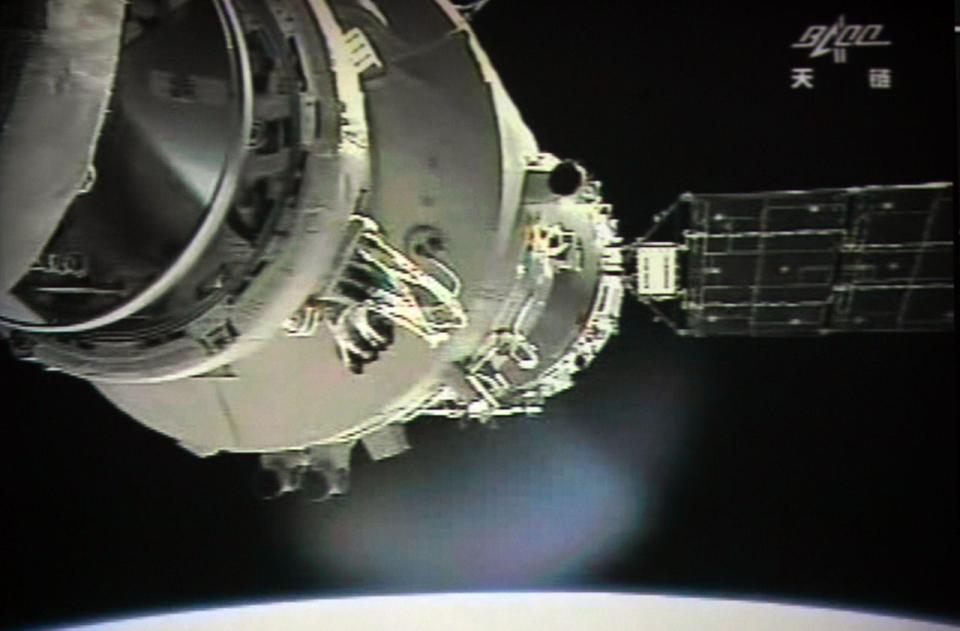Experts mark ‘danger zone’ as Chinese space station ‘will fall to Earth in four months’

A huge orbiting Chinese space station could crash to Earth in an ‘uncontrolled re-entry’ between January and March 2018, experts have warned.
The massive 8.5-tonne Tiangong-1 satellite, launched in 2011, lost radio connection with China’s space agency and is now out of control, the European Space Agency warns.
The ESA says that it’s not clear where it will land, but has offered information on latitudes where fragments might fall.
Most popular on Yahoo News UK
Couple devastated after vet accidentally gives their puppy lethal injection instead of medicine
Mysterious heat source beneath Antarctica could be melting ice, NASA believes
Woman ‘caught trying to buy £1,400 worth of electronic goods for £3 at self-service checkout’
Vicious thug who left pensioner, 88, black and blue after robbing her in her bed is jailed
Fitness addict, 56, crushed to death by his own gym equipment in freak accident
The craft, whose name means ‘heavenly palace’ is now dipping into Earth’s atmosphere, and heading towards our planet.
Most pieces of space junk burn up on re-entry, but because of its size, pieces of Tiangong-1 might reach the ground.

Holger Krag, head of ESA’s Space Debris Office, said: ‘Owing to the geometry of the station’s orbit, we can already exclude the possibility that any fragments will fall over any spot further north than 43°N or further south than 43°S.
‘This means that re-entry may take place over any spot on Earth between these latitudes, which includes several European countries, for example.
‘The date, time and geographic footprint of the re-entry can only be predicted with large uncertainties.
‘Even shortly before re-entry, only a very large time and geographical window can be estimated.’


